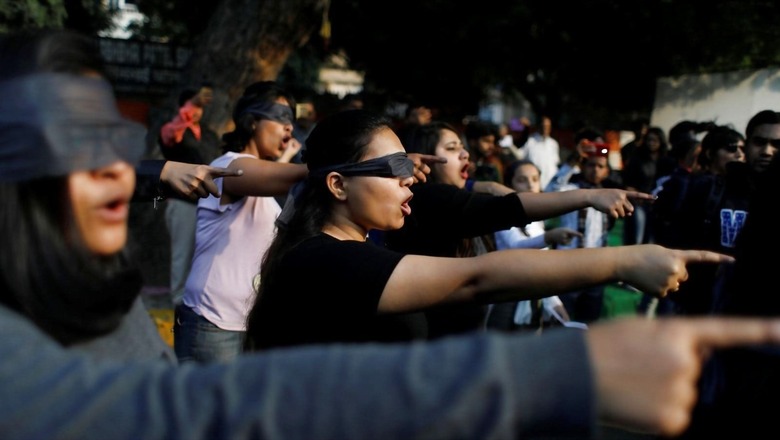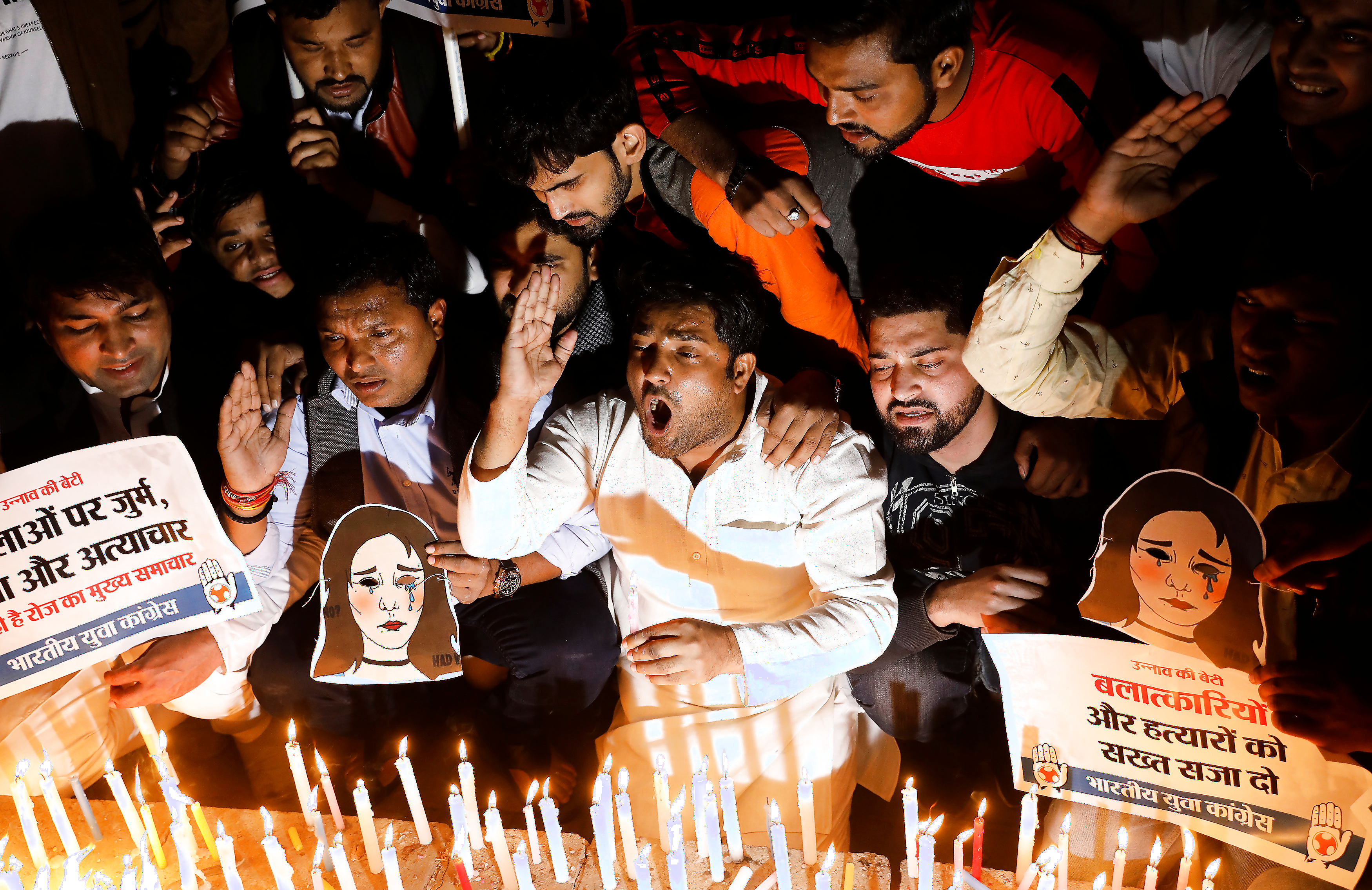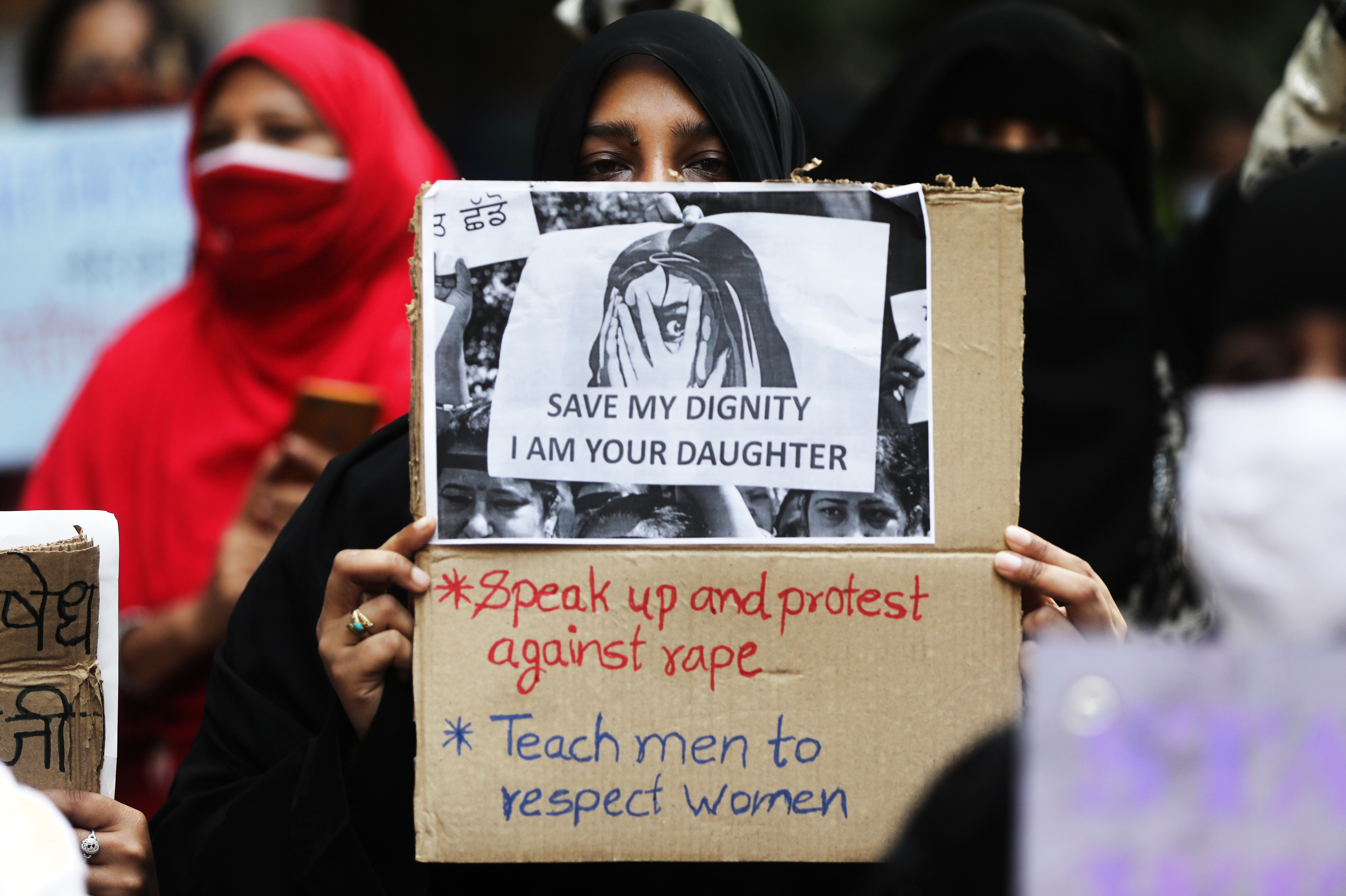
views
A night of monstrosity that shook the nation. It’s been nine years since the country’s collective consciousness cried for Nirbhaya, who fought for her life after being brutally raped by six people on a moving bus. She could not survive, and the gruesome details of the incident sparked a national conversation on change needed to prevent and punish such acts.
The act also brought on changes in law, and a fund was set up for schemes designed for women’s safety and security. However, rape statistics are still discouraging across the nation, and according to data, conviction rates remain low. Here’s a look at what has changed, and what has not, on the anniversary of the chilling Nirbhaya gangrape-murder case.
What Happened to Nirbhaya?
Six men brutally gang-raped a 23-year-old medical student on a moving bus in India’s capital, New Delhi, on December 16-17, 2012. She was thrown out of the bus in a remote location following the heinous assault. On December 29, 2012, she died as a result of her injuries in a Singapore hospital.
The horrifying case shocked the nation’s conscience, made international headlines, and revealed the extent of sexual violence against women in India, prompting lawmakers to toughen rape penalties.
The victim, a 23-year-old physiotherapy student dubbed “Nirbhaya,” or “Fearless,” by the media because Indian law prohibits rape victims from being identified, was walking home from a movie theatre with a male friend when the six men lured them onto a bus at the Munirka bus stop in Delhi. They beat the man with a metal bar, raped the woman, and used the bar to inflict massive internal injuries on her. The couple was dumped naked on the side of the road, and the woman died two weeks later.
Who All Were Convicted?
All of the accused were apprehended and charged with sexual assault and murder. On March 11, 2013, one of the accused, Ram Singh, died in police custody from a possible suicide. According to some published reports, Ram Singh hanged himself, but his defence lawyers and family claim he was murdered. The remaining accused were tried in a fast-track court, and the prosecution finished presenting its evidence on July 8, 2013. In accordance with the Juvenile Justice Act, the juvenile was convicted of rape and murder and sentenced to three years in a reform facility.
The four remaining adult defendants – Pawan Gupta, Vinay Sharma, Akshay Thakur, and Mukesh Singh (Ram Singh’s brother) – were found guilty of rape and murder on September 10, 2013, and sentenced to death three days later. On March 13, 2014, the Delhi High Court upheld the guilty verdict and death sentences in the death reference case and hearing appeals. The Supreme Court of India rejected the final appeals of the attack’s convicted perpetrators on December 18, 2019. On March 20, 2020, the four adult convicts were executed.
How India’s Rape Laws Changed and Why That Has Not Been Enough
The country’s rape law was amended on March 21, 2013. The new tougher anti-rape law, the Criminal Law (Amendment) Act of 2013, redefined rape and increased punishments, including the death penalty for repeat rape offenders.
The Criminal Law (Amendment) Act, 2013, provided for rigorous life term and even death sentence for rape convicts besides stringent punishment for offences like acid attacks, stalking and voyeurism.
However, changes made to criminal law after the 2012 Nirbhaya case have not yielded the desired results as the problem lies with implementation to make the law a deterrent, legal experts have said, making it clear that unless laws are implemented effectively, no progress can be made on the ground.

Senior advocate Vikas Pahwa told PTI that anti-rape laws are not inadequate and were stringent even before the 2013 amendment and the Indian Penal Code covers each and every act of sexual offence. The changes were made after the Justice J S Verma Committee recommended enhancing imprisonment for rape and death caused by rape to up to 20 years and life for gang rape but refrained from suggesting death penalty in such cases.
Senior advocate Aishwarya Bhati told PTI that she welcomed the changes made to the law but said the problem essentially was with its implementation. She claimed that the police force lacks authority and does not inspire citizens’ trust.
“You must give police more authority. Make them accountable first, then empower them. Police officers are assigned to other duties, such as VIP movements,” Bhati told PTI.
Senior advocate Rebecca John told PTI that tougher punishment for sexual offences isn’t the only answer, and that other effective measures were also needed. She suggested that rape suspects be prosecuted in a timely manner and that the application of laws be equal for all; those affiliated with political parties should not be treated differently.
“In such cases, prosecution and trial should be completed as soon as possible. Empathy should be shown to victims of sexual offences, and the victim should not be humiliated, as is done on a daily basis in courts,” she said.
What About the Nirbhaya Fund?
The Nirbhaya Fund, established by the government in the aftermath of the tragic gang rape-muder, was specifically designed to be used for schemes implemented by different states to ensure women’s safety and security in public places, as well as a one-stop centre for their grievances, a helpline, and other measures.

However, according to reports, the funds remain severely unutilised in many states even after nine years. According to a report in the Times of India, poor coordination among government agencies resulted in only 10% of the sanctioned Rs 461 crore being used in Tamil Nadu until April 2021.
The Orrisa Post reports that the state government received Rs 2,532.49 lakh from the Nirbhaya Fund from 2016 till January 2021-end, but that Rs 1,872.42 lakh could not be spent.
Similar reports, over the years, have outlined the disappointing use, or lack thereof, of the funds.
Recent Rape Crime Statistics Are Not Encouraging
According to most recent data by the National Crimes Record Bureau (NCRB) rape cases continue to have a low conviction rate of only 39%. The NCRB statistics on case disposal by police and courts paint a very bleak picture of the rate of conviction, which is indicative of either faulty investigation or IPC sections wrongfully imposed on an accused.
Over 43,000 rape investigations were launched during 2020, but only 3,814 rape cases resulted in a conviction.
Citing data from the NCRB, the government told the Parliament on Wednesday that 371,503 cases of crimes against women were registered across the country last year. According to the data, 398,620 people were arrested in 2020 in connection with crimes against women, 488,143 were charged, and 31,402 were convicted.
Brutal Cases Like Nirbhaya’s Continue to Batter India’s Conscience
Shocking and brutal cases of gangrape and murder continue to take place in a post-Nirbhaya India. A recent case that took place was in Hathras, wherein on September 14 last year, four upper caste men gang-raped a 19-year-old Dalit woman in Uttar Pradesh. She died two weeks later in a hospital in Delhi. Initially, it was reported that one of the accused attempted to kill her, but the victim later stated to the magistrate that four of the accused raped her.
According to the victim’s brother, no arrests were made in the first ten days following the incident. The victim was forcibly cremated by the police after her death, despite her family’s objections, according to the police. The case and its subsequent handling drew widespread media attention and condemnation across the country, and activists and the opposition staged protests against the state government.
A year before that, the gang rape and murder of a 26-year-old veterinary doctor in Shamshabad, near Hyderabad, sparked outrage across India in November. Her body was discovered on November 28, 2019, in Shadnagar, the day after she was murdered. Four suspects were apprehended and confessed to raping and killing the doctor, according to Cyberabad Metropolitan Police.
According to the Telangana Police Department, the victim parked her scooter near a toll plaza, which drew the attention of two truck drivers and their assistants. They allegedly deflated her tyre, pretended to assist her, and pushed her into nearby bushes, where they raped and smothered her. They allegedly loaded her body onto a lorry and dumped it on the side of the road.
Read all the Latest India News here

















Comments
0 comment